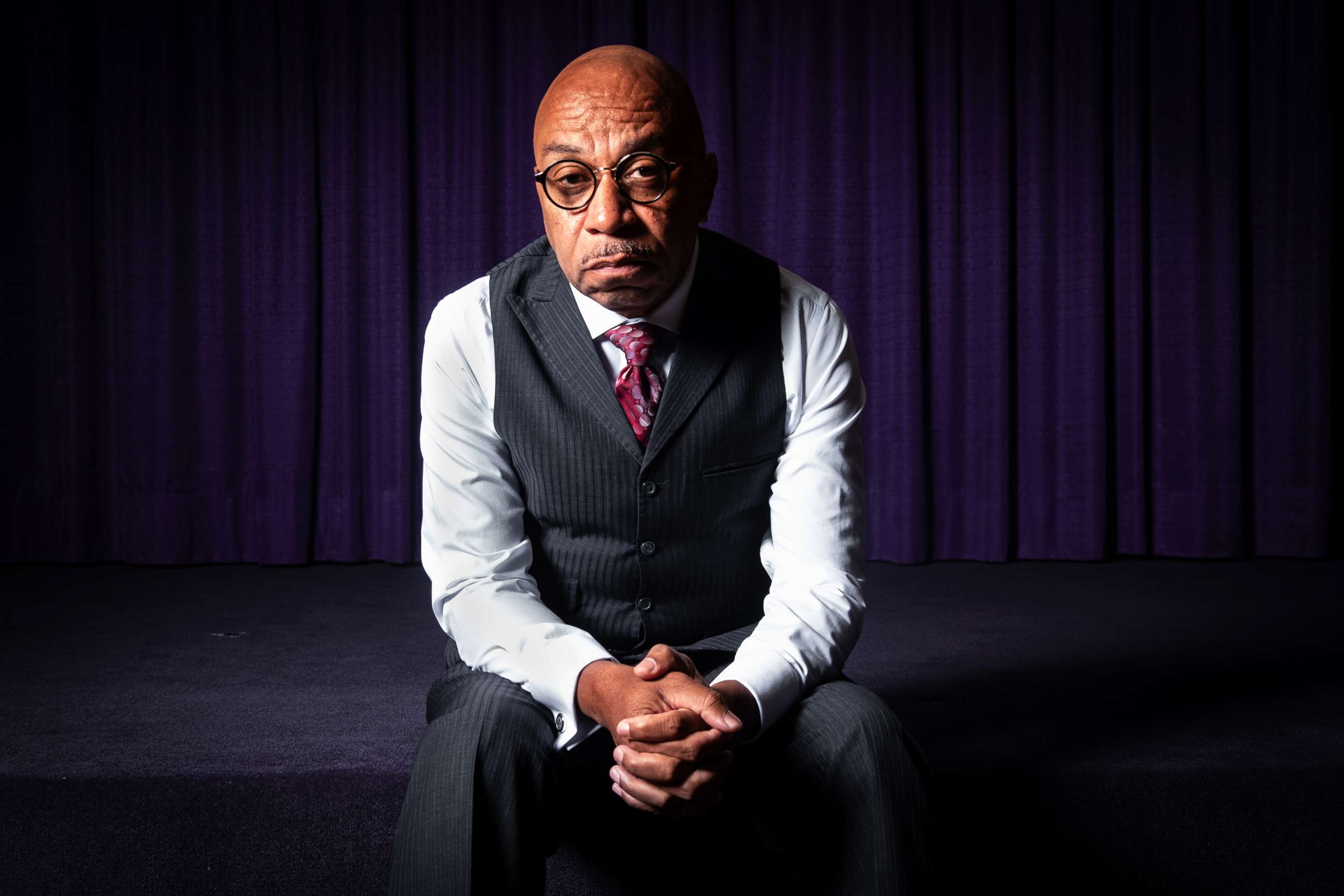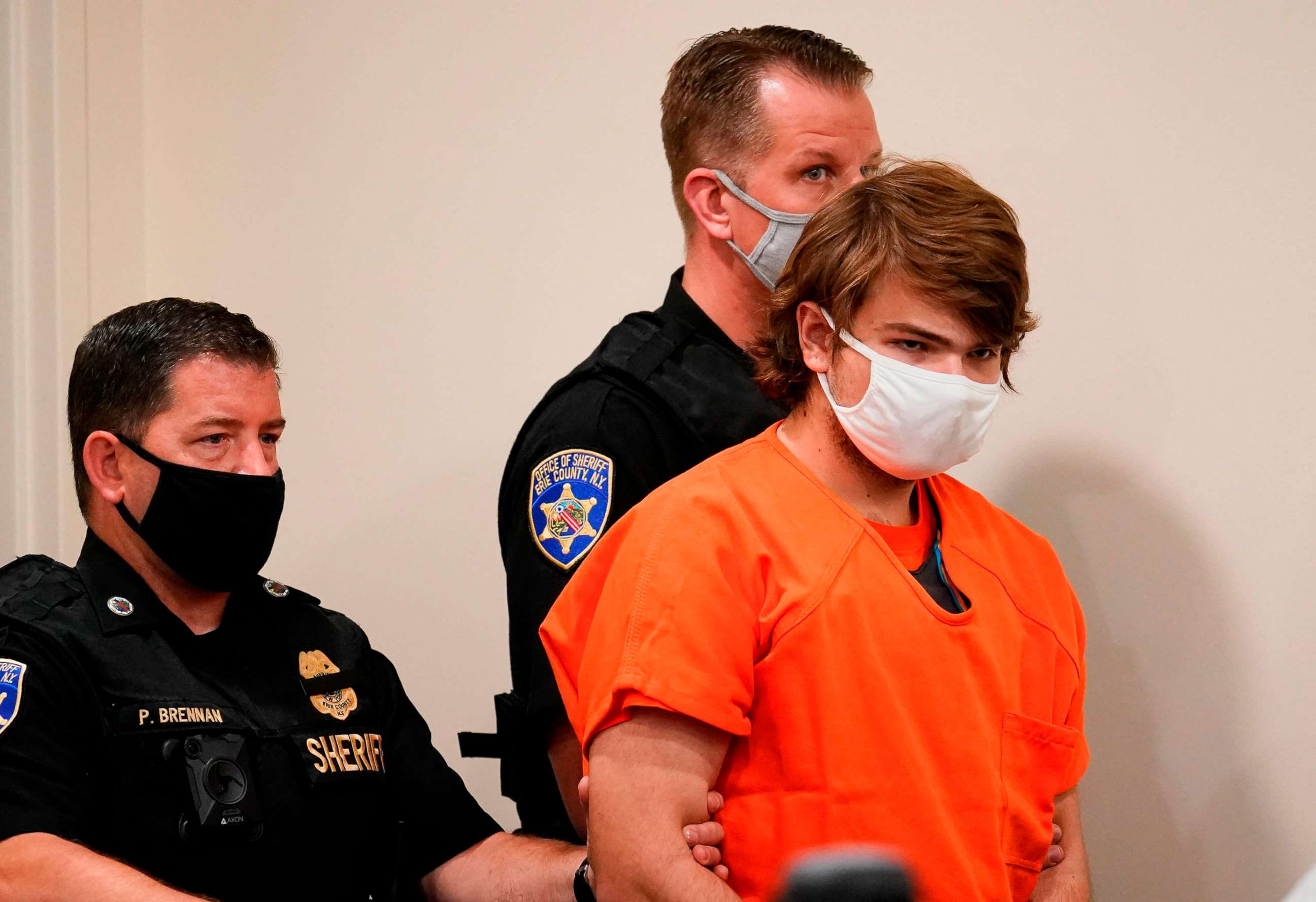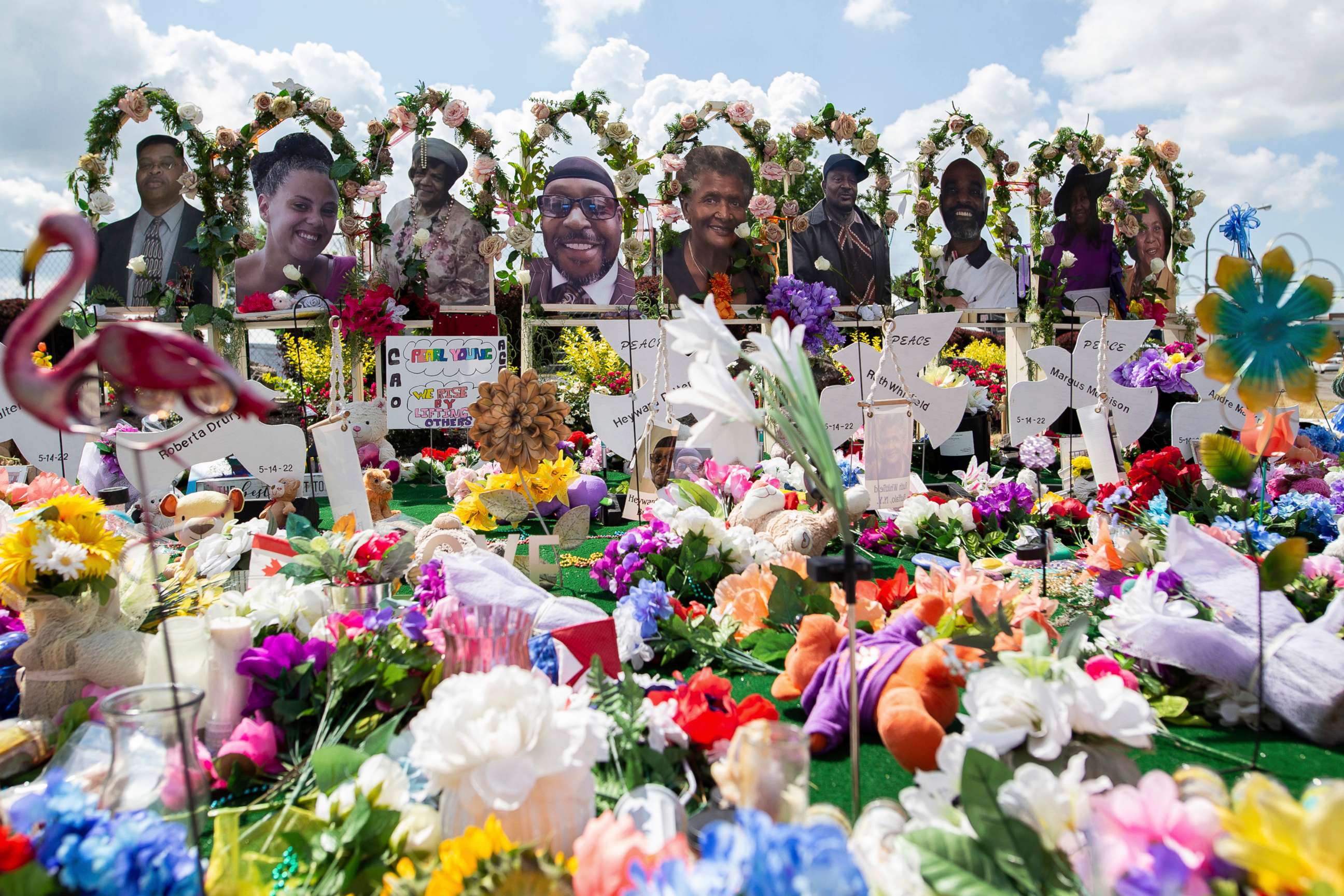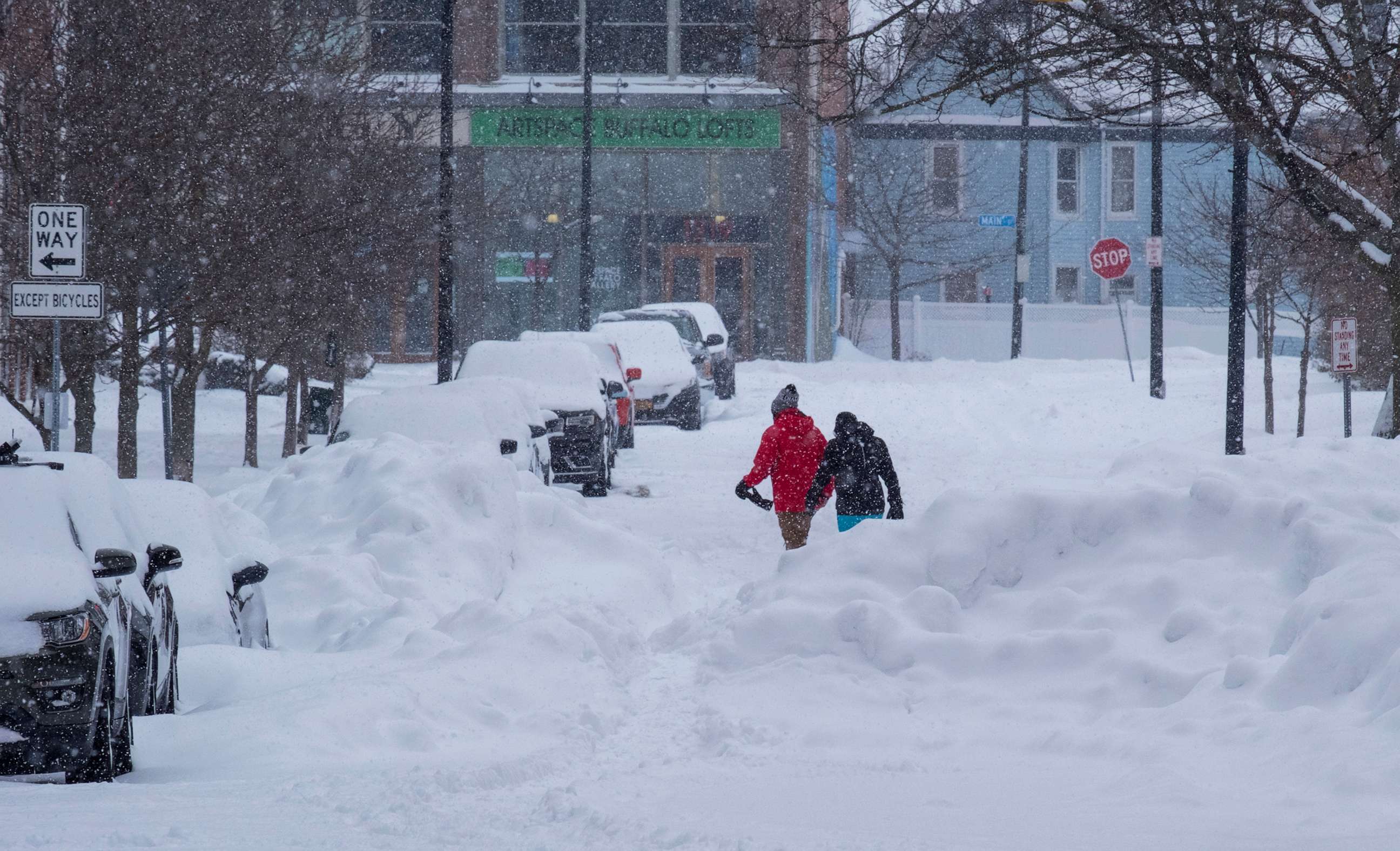Buffalo pastor prays for a break from turmoil, as mass killer awaits sentencing
BUFFALO, N.Y. -- He frequently preaches forgiveness, yet Darius Pridgen, pastor of one of the largest Black churches in Buffalo, said it's taken him months to consider forgiving the teenager who killed 10 people in a racially motivated attack at his neighborhood grocery store.
Pridgen, who is also president of the Buffalo Common Council, the equivalent of a city council, told ABC News he lost several friends in the May 14, 2022, massacre that left him seething with anger.
In the aftermath of the mass shooting, the 58-year-old Pridgen said he learned the killer likely scouted his church when planning his attack.

"We're still on high alert because the area he went around, allegedly, was this area, to look at Black churches in the city of Buffalo," said Pridgen, whose True Bethel Baptist Church is located on Buffalo's predominantly Black east side, roughly a mile from the targeted Tops supermarket.
The gunman, 19-year-old Payton Gendron, is to be sentenced Wednesday to life in prison without the possibility of parole. He pleaded guilty in November to 15 charges, including murder, attempted murder and domestic terrorism motivated by hate.
In addition to the state case, he is facing hate and domestic terrorism charges in federal court. His attorneys said he might consider pleading guilty if prosecutors agree not to pursue the death penalty.

"At this point, I'm at the point of praying for his soul and for him to have a change of mind. I'm not as bitter as I was, especially as justice continues to move forward and I see some of the families in a better position emotionally," Pridgen said. "I've always said it's difficult for me to forgive him if the families had not."
'Sunday morning is not my most important day'
Pridgen said he shudders to think how an attack on his church could have derailed many of the community outreach programs it has established in the 28 years he's been its pastor. The church has also mobilized in the wake of the tragedy.
The church's food pantry, which distributes free groceries to needy residents weekly, met the uptick of east side citizens needing sustenance while the only supermarket within miles of their neighborhood was a crime scene and was closed for weeks after the shooting, the pastor said. The church's food truck set up shop near the Jefferson Avenue Tops store to feed residents free of charge for days, he said.

"We were just glad we were already positioned to be able to meet the need," said Pridgen, who was elected to the common council in 2012 and represents the Ellicott District, which includes the east side.
The church also held services for two people killed in the massacre.
"I didn't want to pastor a church that only has church on Sunday and Bible study on Wednesday," Pridgen said. "I do Sunday morning to gather the troops for Monday."
A decade before the massacre, the church began offering free funerals, services Pridgen dubbed "Freedom Funerals" to families of homicide victims, even those unaffiliated with the church. The only caveat, he said, is families have to agree to allow grief counselors at the church during the funerals.
Retired Buffalo Fire Commissioner Garnell Whitfield, whose mother, 86-year-old Ruth Whitfield, was among those slain in the supermarket massacre, praised Pridgen and his congregation for the work they have done to help the city try to heal.

Whitfield noted True Bethel Baptist Church has provided much needed low-income and senior housing on the east side, building units on a one-time toxic waste dump the church worked to clean up.
"They're a very progressive congregation and they've helped sustain east Buffalo, they've been an anchor there," Whitfield said.
Following the mass shooting, Pridgen said his church upgraded its security, investing in surveillance equipment.
Ironically, he said, new gun laws approved by New York Gov. Kathy Hochul following the mass shooting are hampering his church security team because they prohibit concealed weapons in houses of worship by anyone other than licensed private security or police.
"All of us here are right now going, 'What do we do?'" Especially when we know we had a white supremacist who was scouting out churches," said Pridgen, a former U.S. Air Force contraband control investigator.
'He gave us a key'
On the day of the attack, Pridgen was at his teenage son's first staged play when Buffalo Mayor Byron Brown called to tell him there had been a shooting at Tops.
"It was this kind of a rip-your-heart-out moment because as a Black dad, you want to be there for this Black boy who's found his way, he loves acting, and I had to leave," Pridgen said.

When he got to the scene, the death toll had grown to 10.
"The one thing this white supremacist idiot did for us is he gave us a key to talk about racism, to talk about white supremacy without being labeled as playing the race card," Pridgen said.
Pridgen said every member of the common council condemned the Tops massacre and many white Buffalo residents followed suit.

"I've said this to my white colleagues who are pastors: If you didn't address this in your church, please don't call me anymore," Pridgen said.
'Can't we get a break?'
Since the Tops mass shooting, Buffalo has endured two of the biggest blizzards in city history, including a late December storm that killed 38 people in western New York, 29 of them in Buffalo.

"People around here keep telling me, 'Can't we get a break?'" Pridgen said.

During the December blizzard, he said his church handed out more than 300 free bags of groceries. Pridgen also performed funerals for two storm victims, including a member of his congregation.
"I think we're still a little bit numb," Pridgen said of his community after the series of tragedies. "The reason is because it seems like every time you start to pull up, there's something else that slams us back down. There hasn't been a break in many people's minds."




